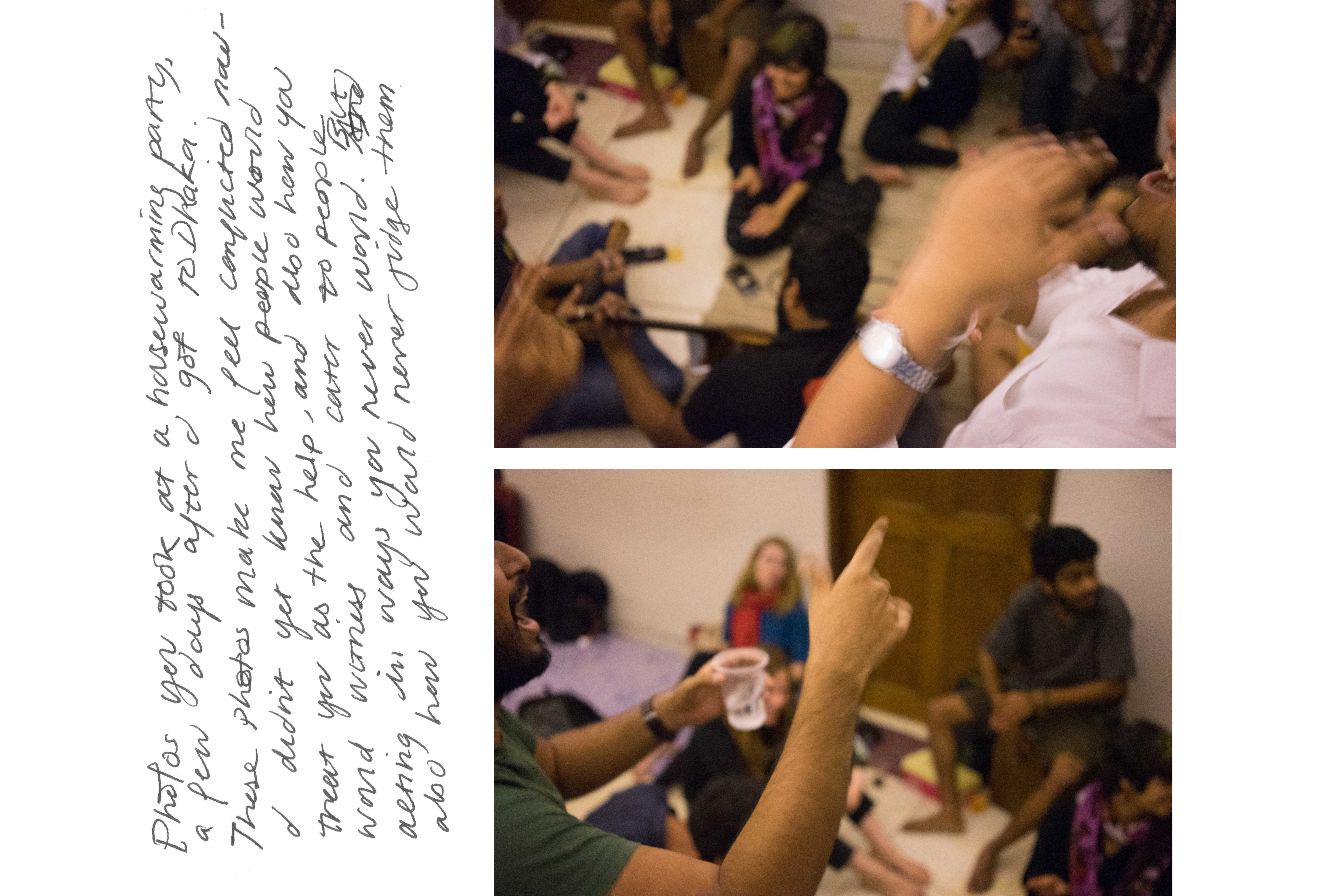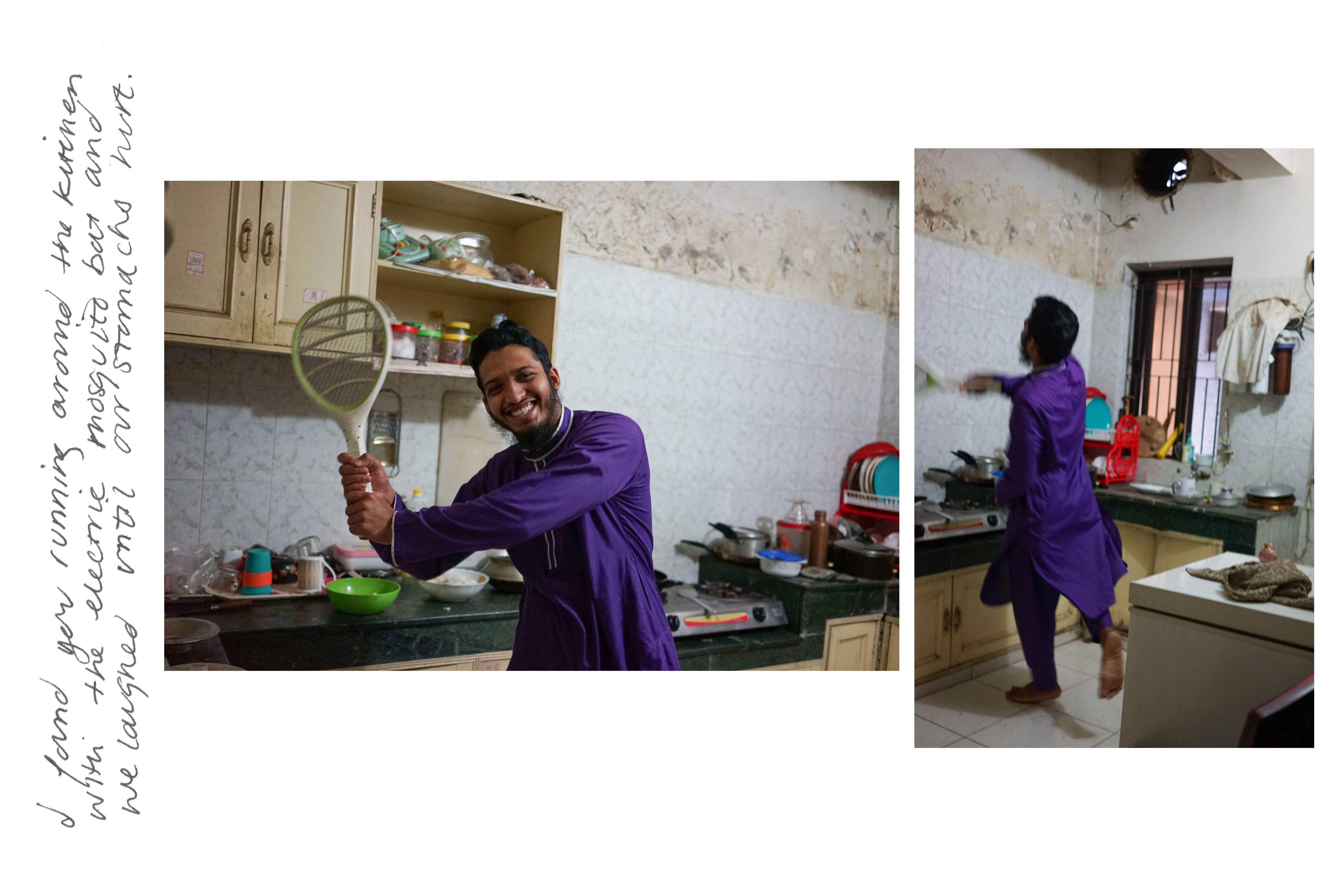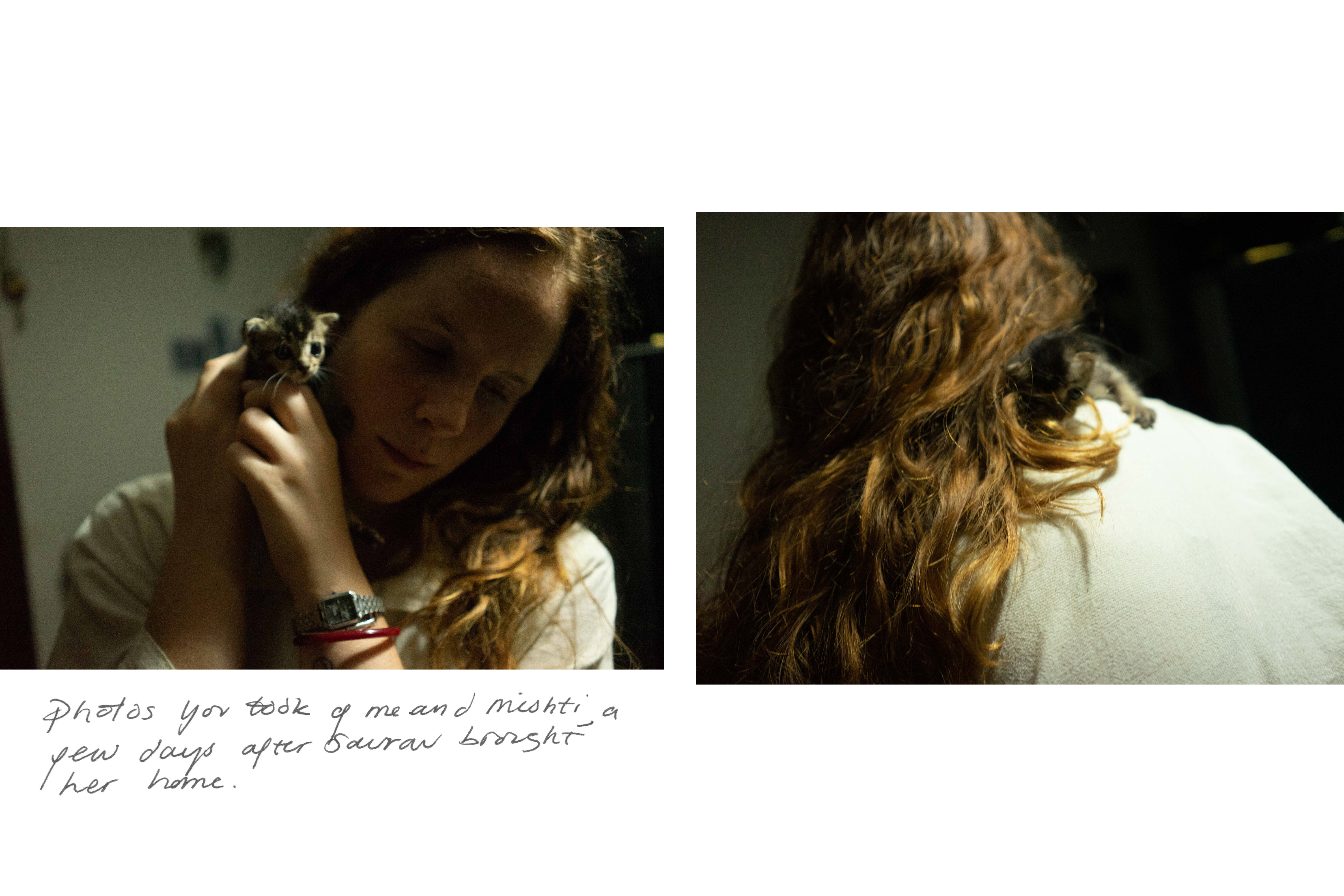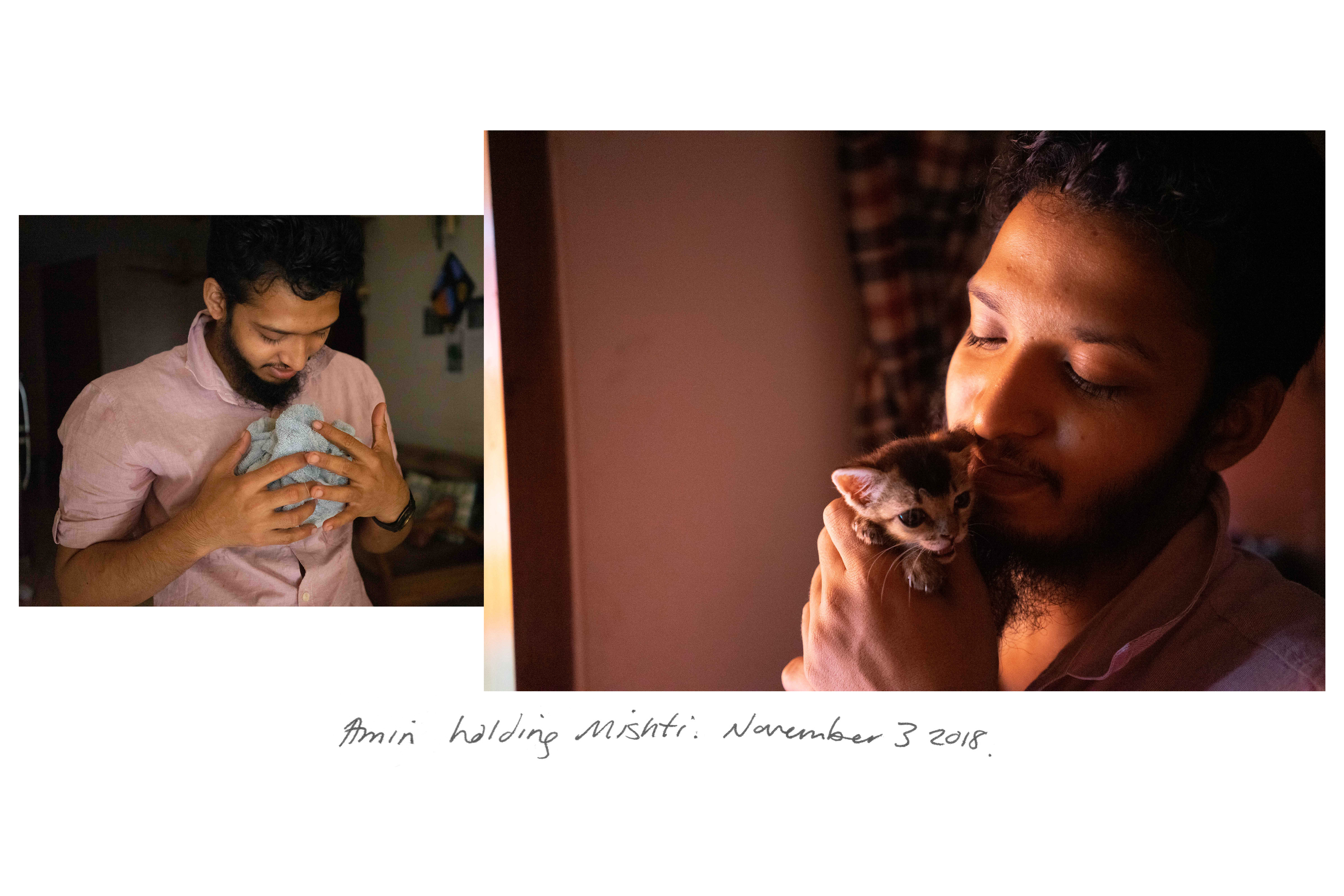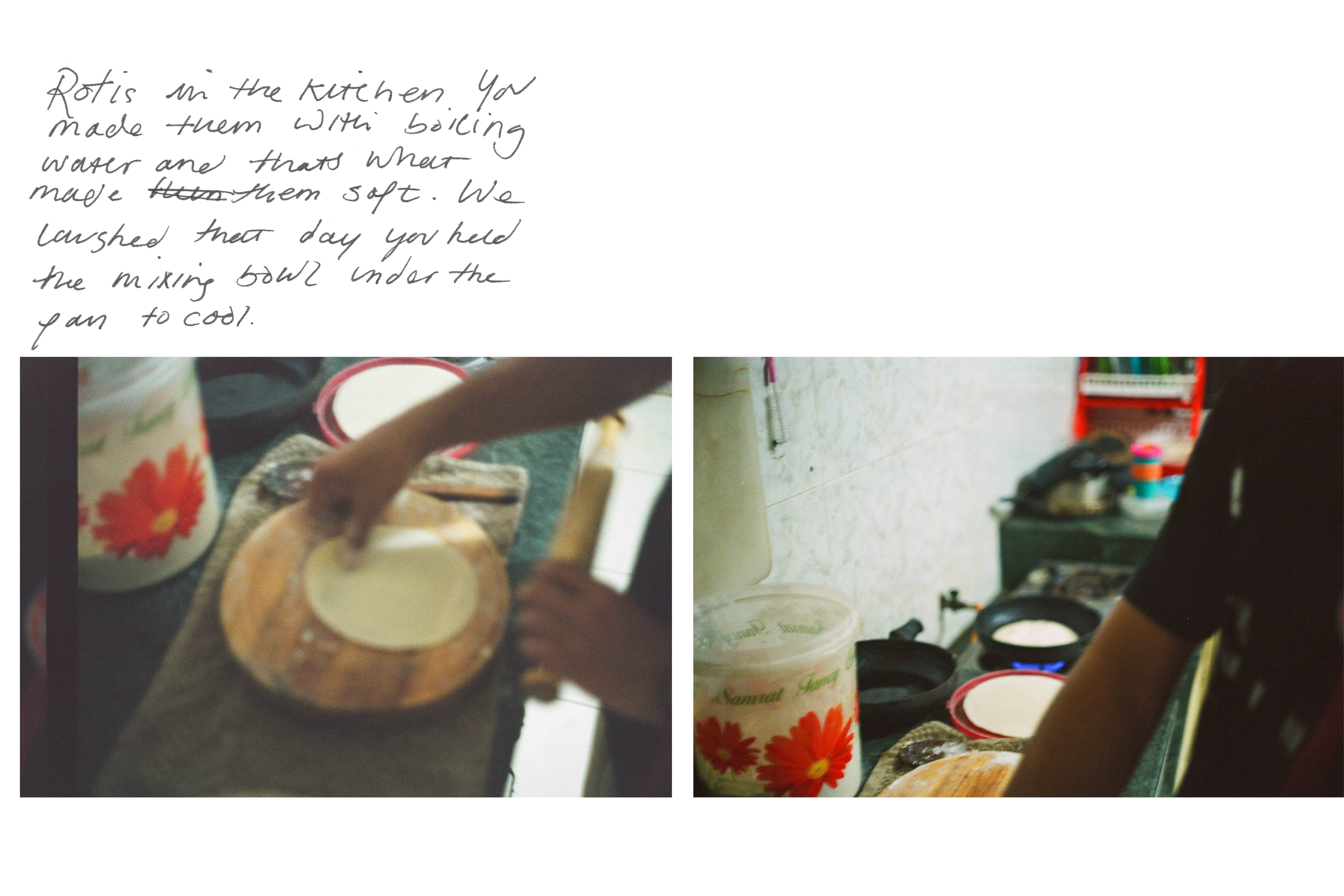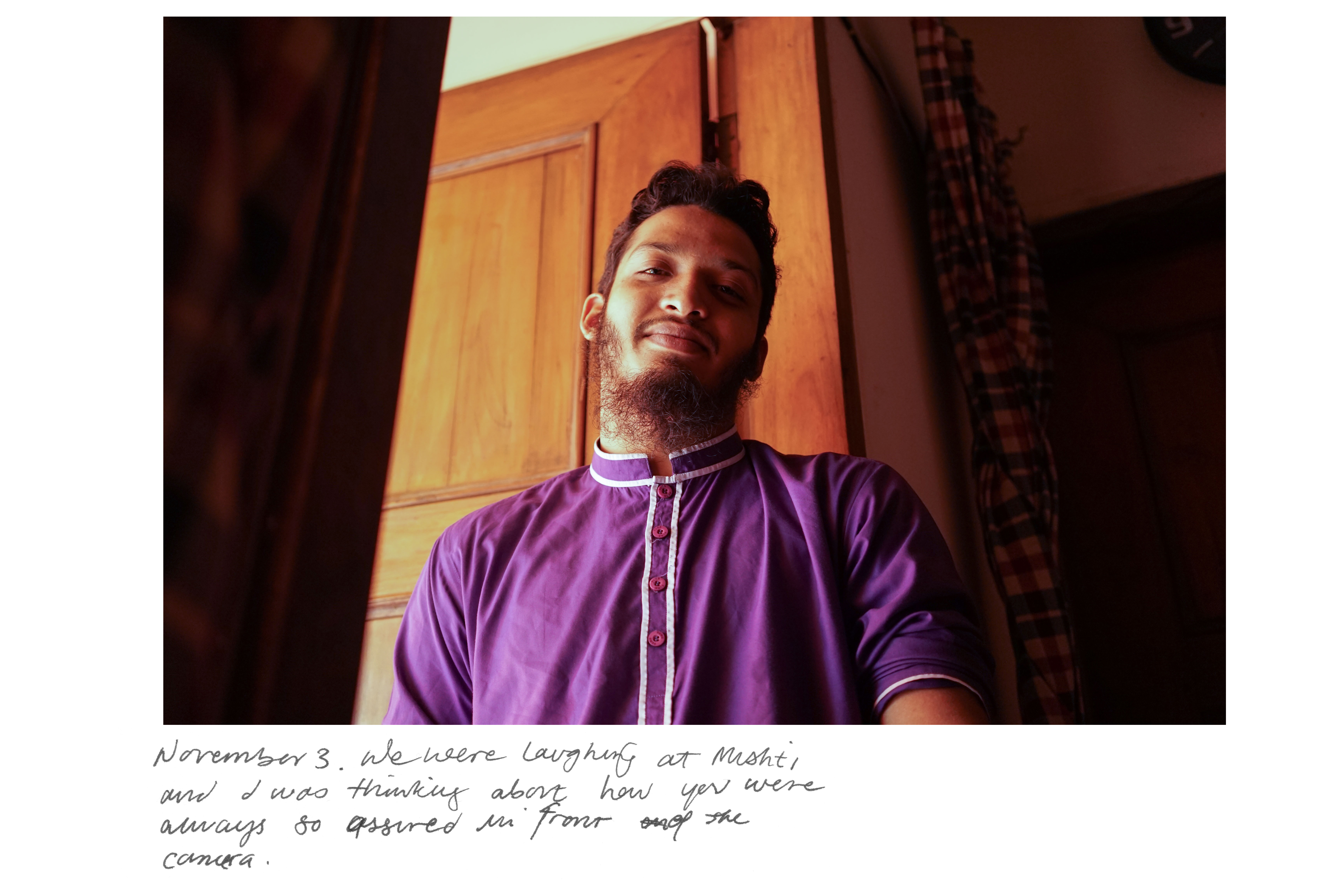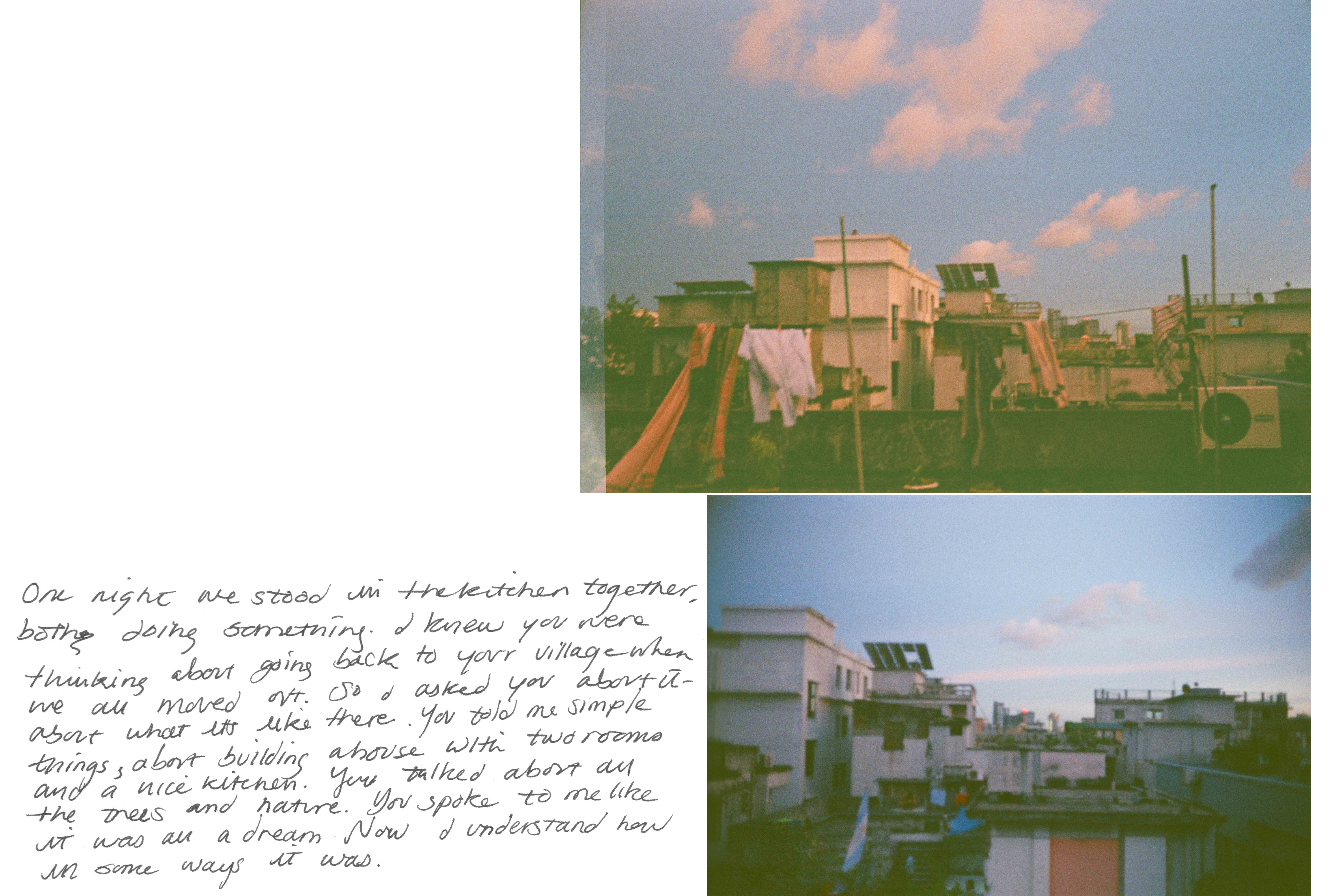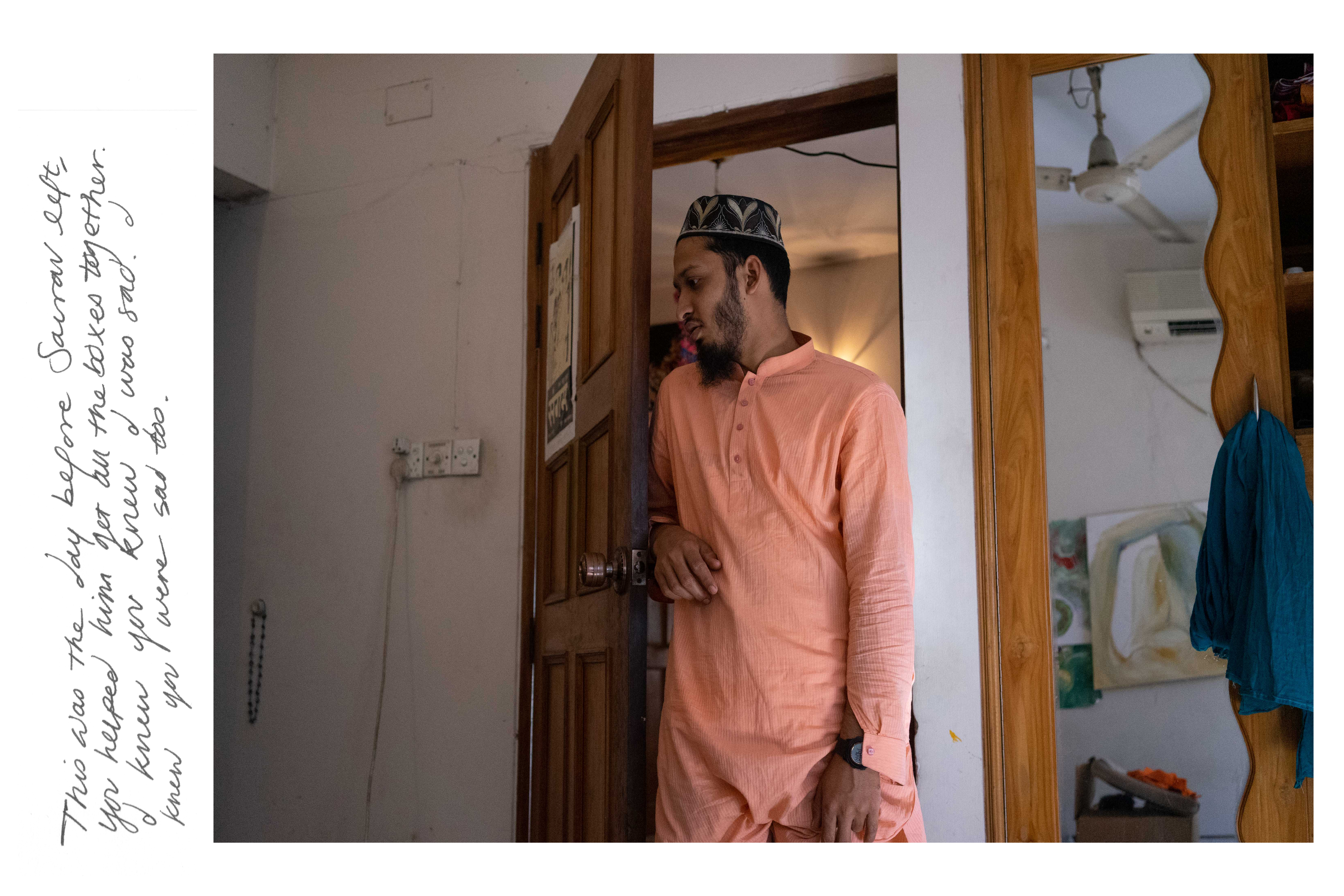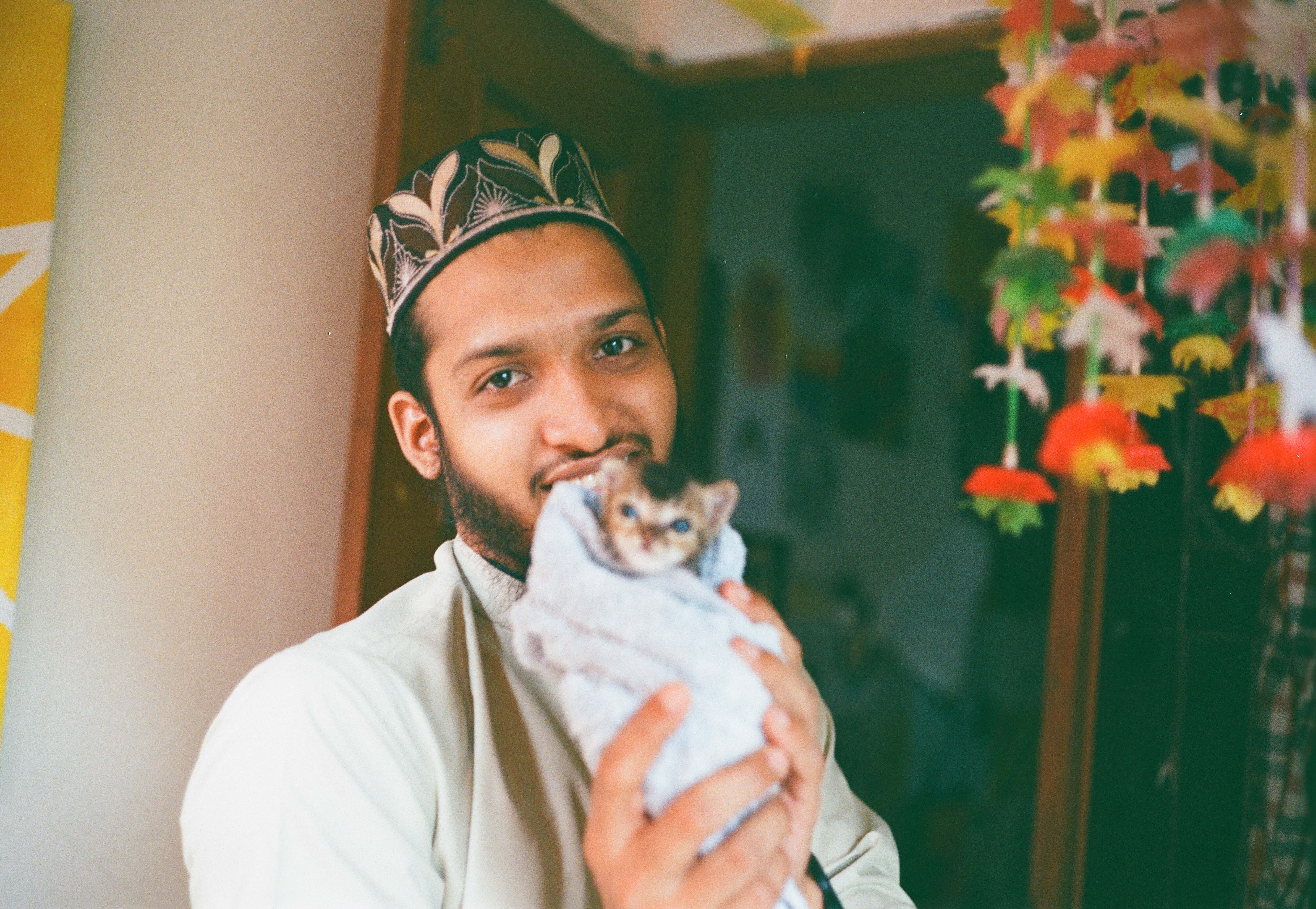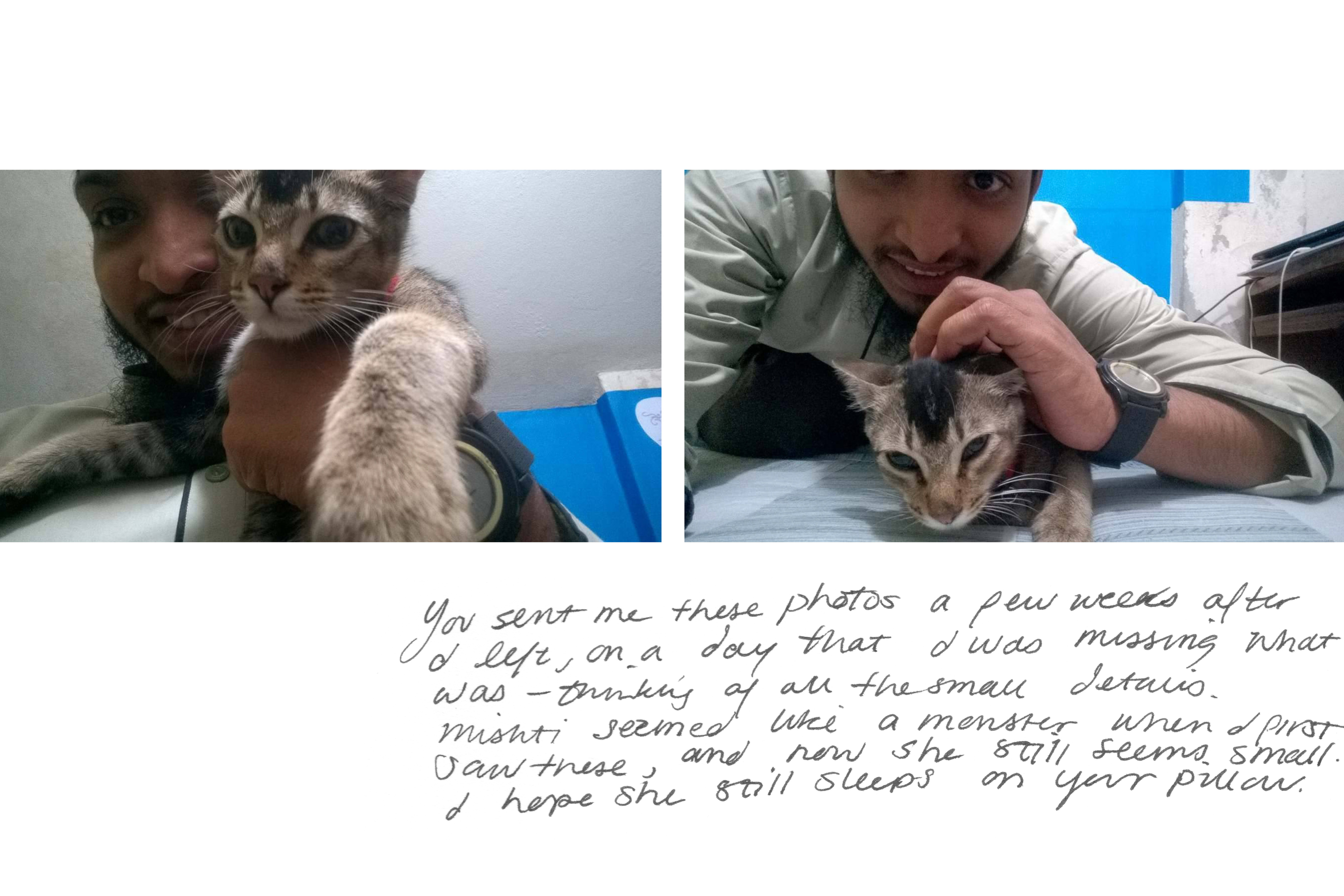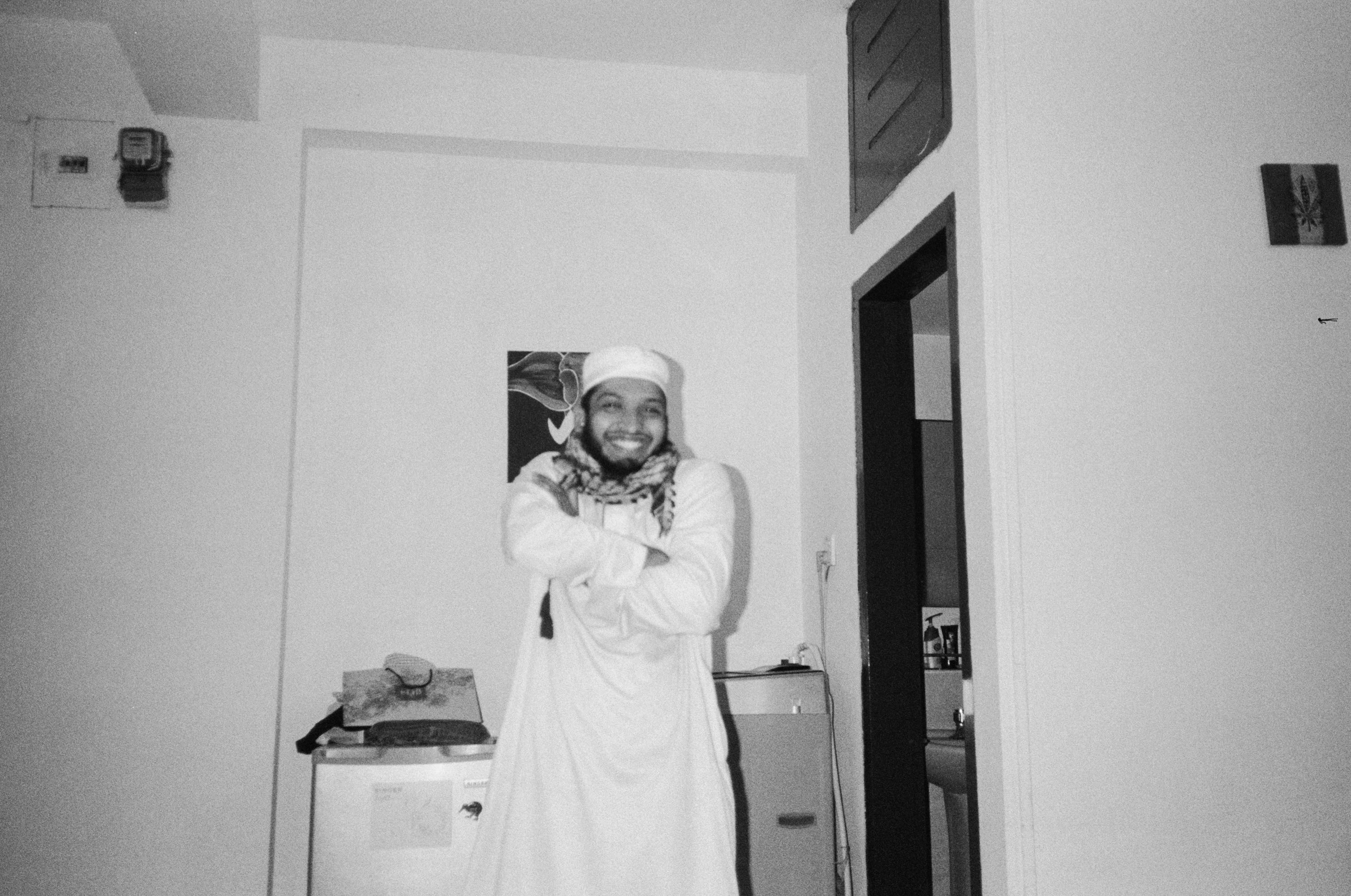
Early 2019 -
Amin was both a friend, a housemate, and what some would call a servant - a complicated relationship that defied stereotypes about domestic help in South Asia. Someone once told me that the definition of family is those that eat from the same kitchen. I have thought of Amin as family ever since.
Amin is from a village called Rowha, north of Dhaka in the middle of Bangladesh. He left about a year ago, when he was 20. He was already living in the house when I arrived, a house that was occupied by friends in their 20’s, not by a traditional family. As we learned to navigate each other across language and social norms, photos became a central point of our connection.
We lived together for nine months, and during that time Amin was given food, accommodation, and a modest monthly salary. In Bangladesh it is estimated that 90% of domestic help workers are women, and in the case where there is a male it is frequently a boy under 18. Amin was an exception. He did the cooking, laundry, and a few other cleaning chores. Over time we developed routines in this arrangement. He knew I would make my own coffee. I knew he could eat a whole jar of peanut butter in one day. He made sure we always had coconuts, and some mornings I would wake up to him banging them on the floor to crack them open when the knife got stuck.
Amin went to a Madrasa, an Islamic school. He became an Imam in the neighborhood and led prayers five times a day. I would find him singing Koranic verses while he boiled potatoes and when he was waiting for the elevator. He is devout, and I knew he was well-respected. While I saw Amin outside of the house, I never spoke to him. He told me once that he didn’t know how the other men would respond to my presence.
But we spoke frequently inside our house and grew a friendship that was uncomplicated and easy. We spent time in the kitchen together and during these hours I came to know more about his life. He has five siblings in his home village and would smile when he spoke about them. Sometimes he would ask me about my desher bari, my home. He asked if there are Muslims in America, and mosques in America. I said yes, that there are thousands of both. His eyes changed, like America became a place he would like to see. I came to know him as curious, gentle, and never judgmental.
The job and the living situation weren’t permanent for Amin. In Bangladesh, 75% Madrasa educated students, of which Amin is one, are unemployed for lack of vocational training. Amin didn’t have a back-up plan. He would ask me about the people that go to Saudi for work. He hadn’t heard as many bad things as I had, but he always ended the conversation by saying that Allah will guide him to the next step.
The next step came sooner than we expected. When we all moved out in December, Amin said he would go back to his village and build a house. He described it to me: two rooms, a nice kitchen. But instead, he stayed in Dhaka and moved into a shared house down the road. He soon found a job with a friend as a day-time cook and cleaner. I recently learned that Amin got fired after less than two months because of communication problems. As of today, I know that he continues to be an Imam in the same neighborhood and still takes care of the cat we raised together.
Amin was both a friend, a housemate, and what some would call a servant - a complicated relationship that defied stereotypes about domestic help in South Asia. Someone once told me that the definition of family is those that eat from the same kitchen. I have thought of Amin as family ever since.
Amin is from a village called Rowha, north of Dhaka in the middle of Bangladesh. He left about a year ago, when he was 20. He was already living in the house when I arrived, a house that was occupied by friends in their 20’s, not by a traditional family. As we learned to navigate each other across language and social norms, photos became a central point of our connection.
We lived together for nine months, and during that time Amin was given food, accommodation, and a modest monthly salary. In Bangladesh it is estimated that 90% of domestic help workers are women, and in the case where there is a male it is frequently a boy under 18. Amin was an exception. He did the cooking, laundry, and a few other cleaning chores. Over time we developed routines in this arrangement. He knew I would make my own coffee. I knew he could eat a whole jar of peanut butter in one day. He made sure we always had coconuts, and some mornings I would wake up to him banging them on the floor to crack them open when the knife got stuck.
Amin went to a Madrasa, an Islamic school. He became an Imam in the neighborhood and led prayers five times a day. I would find him singing Koranic verses while he boiled potatoes and when he was waiting for the elevator. He is devout, and I knew he was well-respected. While I saw Amin outside of the house, I never spoke to him. He told me once that he didn’t know how the other men would respond to my presence.
But we spoke frequently inside our house and grew a friendship that was uncomplicated and easy. We spent time in the kitchen together and during these hours I came to know more about his life. He has five siblings in his home village and would smile when he spoke about them. Sometimes he would ask me about my desher bari, my home. He asked if there are Muslims in America, and mosques in America. I said yes, that there are thousands of both. His eyes changed, like America became a place he would like to see. I came to know him as curious, gentle, and never judgmental.
The job and the living situation weren’t permanent for Amin. In Bangladesh, 75% Madrasa educated students, of which Amin is one, are unemployed for lack of vocational training. Amin didn’t have a back-up plan. He would ask me about the people that go to Saudi for work. He hadn’t heard as many bad things as I had, but he always ended the conversation by saying that Allah will guide him to the next step.
The next step came sooner than we expected. When we all moved out in December, Amin said he would go back to his village and build a house. He described it to me: two rooms, a nice kitchen. But instead, he stayed in Dhaka and moved into a shared house down the road. He soon found a job with a friend as a day-time cook and cleaner. I recently learned that Amin got fired after less than two months because of communication problems. As of today, I know that he continues to be an Imam in the same neighborhood and still takes care of the cat we raised together.

